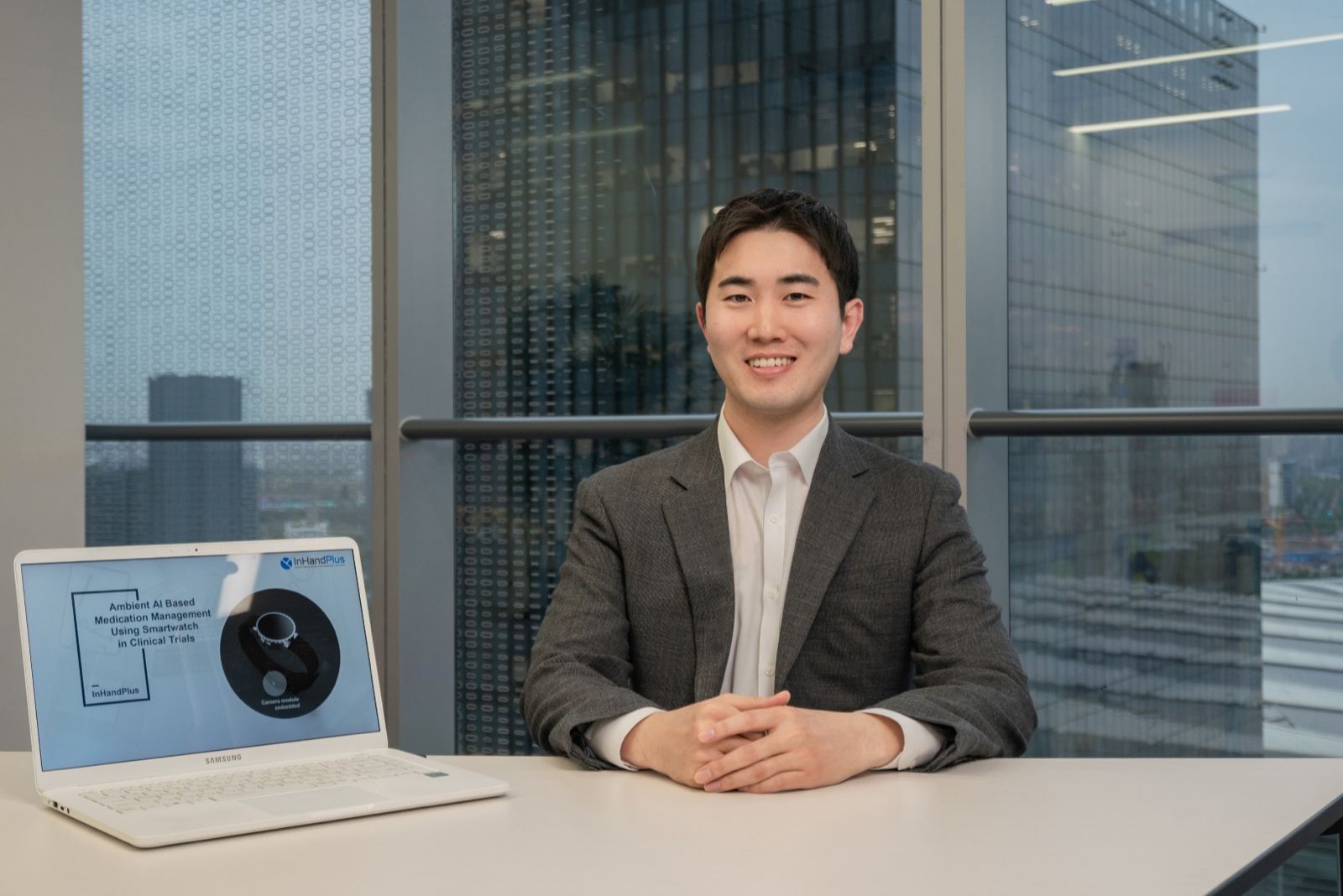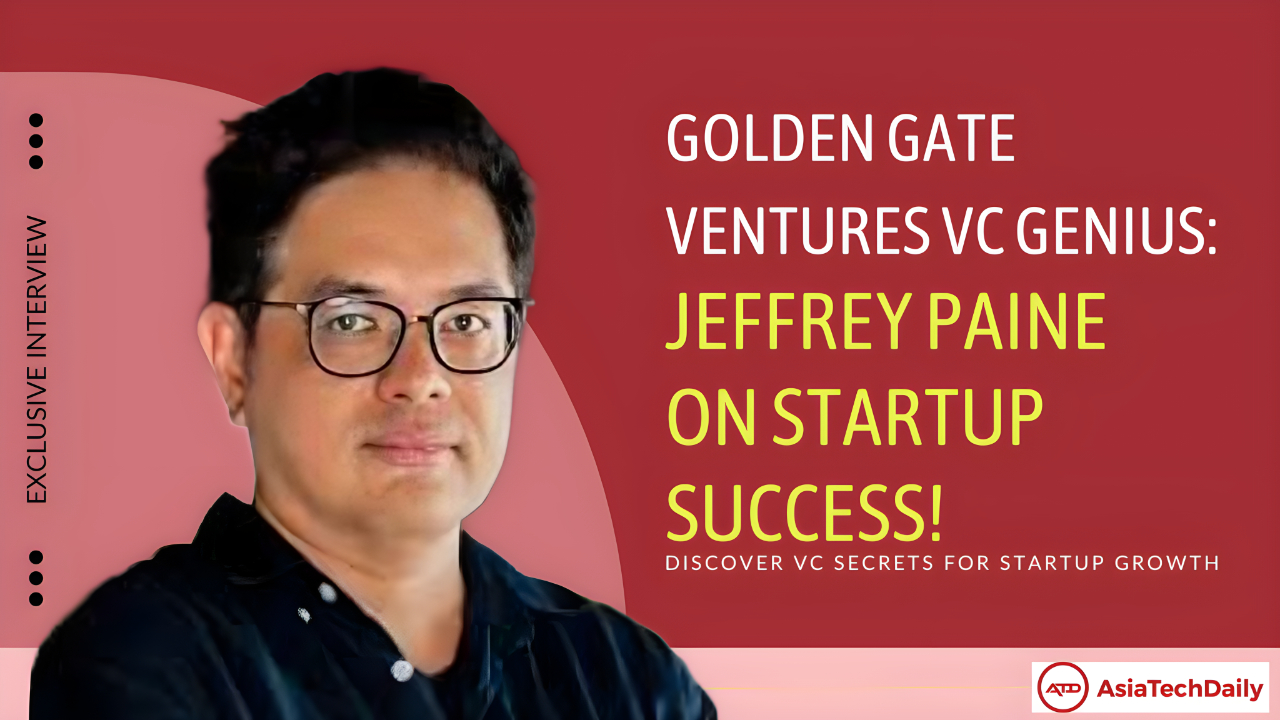AsiaTechDaily – Asia's Leading Tech and Startup Media Platform

Haley Fradkin, Plum Alley – Backing B2B Startups And Gender-Diverse Founding Teams
Haley Fradkin is an investor at Plum Alley, a Venture Capital firm backing B2B startups operating in deep technology and frontier healthcare. Plum Alley invests at the Series A and B level in companies with gender-diverse founding teams and a go-to-market focused on improving the overall human experience. Haley leads the investment committee in deal sourcing and diligence, and portfolio management, providing resources and business development opportunities for the founders.
Haley is active in the early-stage technology ecosystem speaking on topics around innovation in venture and diversity and tech and serves as a mentor across accelerator and incubator programs. Through judging pitch competitions and beyond, Haley Fradkin operates as a networking catalyst, solidifying relationships between founders and investors. Haley is also an active member of the Leadership Council for the Woman of Color Connecting Initiative by the Institute for Entrepreneurial Leadership.
[ihc-hide-content ihc_mb_type=”block” ihc_mb_who=”unreg” ihc_mb_template=”1″ ]
Prior to joining Plum Alley, Haley worked for State Street Global Advisors on the Global Fixed Income ETF Portfolio Management team, and at Morgan Stanley in Wealth Management. Haley graduated from Tulane University – A.B. Freeman School of Business with a BSM in Finance and Management.
Read on to know more about Haley Fradkin, her views on the startup ecosystem, and how to secure investment.
What background and domain expertise do you have? What makes you turn into an investor?
Haley Fradkin: With a background in finance and entrepreneurship, I became an early-stage venture investor to participate in the growth and strategic direction of the next generation of Fortune 500 companies.
As an investor, what kind of startups (or what sectors) have you invested in so far? How did you find those startups to invest in?
Haley Fradkin: I invest in B2B, deep tech and frontier healthcare at the Series A and B stage. We source our pipeline from a wide range of individuals and organizations including industry events, strategic corporate partners, collaborations with other VCs and ecosystem partners, conferences, news press announcements, pitch competitions, databases, accelerators, incubators, and more.
What would be the core factors that you decide “Not” to invest in certain companies?
Haley Fradkin: There are many reasons not to invest when analyzing an early-stage company because this asset class brings a great amount of risk. The factors that lead to direct investment are often supplemented by qualitative interactions and market timing.
At Plum Alley, we only invest in companies with gender-diverse founding teams with at least one female (co)founder with equal equity representation on the cap table. We decide not to invest in certain companies if they do not have a founding team of men and women. We would not invest in companies if the founders did not have domain expertise if their data lacks evidence of market validation or a clear path to product-market fit if there are clear holes in a business and revenue model, or a competitive landscape was overcrowded.
What would be the KPI that you usually check about the startups’ growth? It may diverse in each industry like LTV, CAC, MoM, etc. but would be helpful to understand more about your additional investment factors.
Haley Fradkin: The KPIs we use to evaluate are different based on industry, though most are anchored in enterprise/B2B traction. Unlike other VCs, we choose not to set strict minimums or maximums around metrics like ARR or valuation because our belief is that the investments we make are not solely based on what the company has built in the past, but it’s lifetime potential for ROI and positive impact.
What is the investment range and In a typical year, how many startups do you invest in? And overseas headquartered startups have a chance to get investment from you or should be headquartered in certain countries?
Haley Fradkin: Plum Alley’s check size ranges from $500k – $1.5M and we will invest 5 – 10 companies per year. The majority of our portfolio is US-based; however, we are in the process of making our first international investment in a Swedish-based company! Moving forward, we will consider investment if the business is headquartered overseas but has strong market potential in the US and is in the process of structuring a Delaware Corporation.
What are the main factors that startups fail as per your experience “AFTER” getting investment and how can they prevent mistakes in advance from your personal perspective?
Haley Fradkin: It is important to realize that startups success is more of a rarity than a goal. When companies are in the early stages of raising venture capital, beyond the situations one has control over, there are many macroeconomic considerations or random turns of events can lead to a company going out of business.
Though startups can and do frequently fail for no rhyme or reason – I have seen a couple of broad patterns that relate to timing and funding.
Timing: The biggest influence on both founders and funders is timing. A company might have a brilliant innovation that commercializes when the market is not yet mature enough to adopt it. Or a startup may have built a solution that is cheaper than what already exists but the enterprise clients recently integrated 3 separate products that serve a similar purpose.
Financing: Access to smart money is not easy to come by. When capital is available, companies still fail because they do not plan specific financing needs through the longevity of the business. When you are raising angel or pre-seed or any capital in exchange for equity, you are considering how that impacts the Series B, C, and D rounds. If you do not have a grasp on what your business needs now to achieve $100M in revenue, then it will be difficult to achieve much traction.
What’s your advice to entrepreneurs who have a chance to meet investors like you? and What are the top 3 questions that you always ask the founders?
Haley Fradkin: If possible, find a way to meet the investor in-person and have some tangible give or ask. Whether it be a pitch or a partnership opportunity, time is of the essence so if you can meet me face to face and convince me in 90 seconds that I should continue listening, you’ve done your job.
If you can’t meet in person, get a warm intro over email. The best – and only truly valuable – warm intros come from folks that the target investor trusts and respects highly. This can be a corporate partner, founder in their portfolio, or highly regarded co-investor who can and will vouch for you when you are not in the room.
I ask founders many specific questions regarding their leadership style and their business strategy, but what is most important to me is to understand, and believe, what the founder’s motivation was to start the business. Being an entrepreneur is a thankless job and unless a major influence is driving you to bring the company to fruition, it simply will not happen.
Right after being an investor like in early days, there must be some tough times in building up the first fund along with building up a second fund or giving back the good returns to those LPs, If there is any similar tough time like this, please tell me more about it and how you (or your team) overcome the difficult times.
Haley Fradkin: Being an emerging fund manager in 2019 poses some difficulty as the venture landscape continues to grow and diversify in the US. LPs have a number of venture vehicles they can target – many with track records of exits and IPOs that have proven a firm or General Partner with that secret sauce and ability to execute time and time again. You do not frequently hear of venture fund managers who are women which is part of the problem that leads to less than 2% of VC dollars deployed to female-founded companies.
At Plum Alley, we mitigated the risk of being an emerging fund manager by building a stand-alone business which is a syndicate membership model. This allowed us to prove that we could structure a successful portfolio of deals and use that traction to bring to prospective LPs in the near future as we go out to raise our first institutional fund. Although raising anchor capital is never easy when you’re doing it for the first time, we have a thoughtful approach to presenting our model to LPs as we have displayed our value-add as investors and exactly why a company can be more successful having Plum Alley on the cap table.
What’s your general thought about the term “Global” and What are the important factors (criteria) for local startups to consider for international expansion?
Haley Fradkin: In my opinion, the goal for most of our portfolio should be to go global. This is because our investment mandate encompasses founders and teams offering enterprises access to their novel environmental intelligence, education, and underlying technology that can improve lives, cities, and communities in many ways. That said, there are many challenges to geographical expansion. The one way to mitigate risk is to grow by partnering with local individuals, businesses, and governments to gain traction in new markets. Without strong corporate partnerships, it is much less likely for a business to integrate substantially in new geography.
What kind of startup (or tech) industry will impact the world in the near future like 2-3 years locally (in your country) and globally in your own personal view?
Haley Fradkin: My viewpoint is that clean technology companies will have the largest impact. Everything from agricultural technology, food, water and energy supply chains, air quality monitoring, recycling technology, electric vehicle technology, and other applications to the reduction of carbon emissions can and will have a significant influence on governance in these areas which need immediate attention.
What are the one or two things that you would do differently if you could go back to 10 years ago?
Haley Fradkin: Start deploying venture capital earlier! And gain hands-on experience as a board member.
As you know, our company group name is “beSUCCESS”, what’s your definition of the term “success” as an investor or as an individual human being?
Haley Fradkin: Success means our companies have built something new and powerful that needs to exist in the world. This innovation should withstand the tumultuous early-stage venture years and it becomes successful at the point of sustainability when the founder’s day to day management is no longer the main influence driving the business. Success to me means we have our investment thesis brought to fruition in a number of companies in our portfolio that represent the traction stated above.
You can follow Haley Fradkin here.
Are you looking to secure investment for your startup or a keen startup enthusiast, keep an eye on our interview section.
Follow Asia Tech Daily to know about the innovative startups and how they are revolutionizing the ecosystem.
[/ihc-hide-content]





